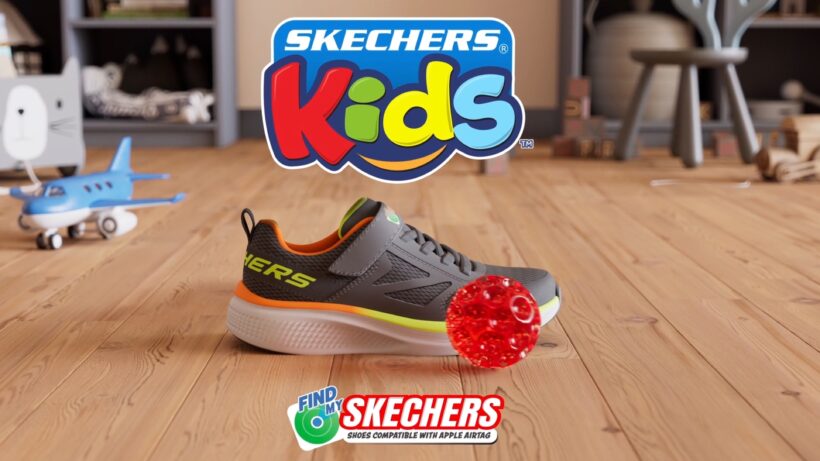The 'Find My Skechers' line lets parents track the shoes' (and kids') location via Apple's network
Shoe brand Skechers has quietly launched a new line of kids’ sneakers featuring a hidden compartment designed to hold an Apple AirTag.
The range, which appeared on the company’s website in mid-July with little fanfare, allows parents to track the location of their child’s shoes—and, by extension, their child—using Apple’s Find My network.
The ‘Find My Skechers’ feature is integrated into the brand’s ‘Go Run’ line for toddlers and young children. A small pocket is concealed within the heel of the shoe, under the insole, providing a discreet spot to place an AirTag (sold separately).

It all appears to be an unofficial integration, with no formal partnership announced with Apple—and one we would guess the Cupertino giant isn’t too thrilled about.
After all, it delivers warnings during initial AirTag setup (and online via its newsroom) that the device is designed to track belongings, not people (or their belongings, obviously).
Priced between $52 and $58, the shoes are a direct response to a behavior that is already widespread: parents using AirTags as a low-cost way to keep tabs on their kids.
However, it’s not just about which side of the fence people sit on regarding parental surveillance; AirTags and the Find My platform simply have limitations that make these shoes a little sketchy (pun very much intended).
With AirTags not featuring built-in GPS, they’re not often much use in the real-time tracking of moving people. Instead, they ping their location by communicating with nearby Apple devices on the Find My network.
The Wareable take
We’re fascinated by this one—and it wouldn’t be a surprise to see other shoe manufacturers jumping on board in the coming years. While not technically a wearable in the traditional sense, these shoes are a perfect example of a broader trend: how simple, affordable trackers can be turned into a node in a surveillance network.
And, on one hand, Skechers is simply building a product for a clear, existing demand. On the other, it could be argued that the brand is normalizing the constant location tracking of children and wading into that whole ethical minefield (all while carefully marketing the feature as a way to find lost shoes, not lost kids—something we’re not sure anybody is asking for).
The product also neatly appears to sidestep Apple’s recently introduced anti-stalking features, as the young children wearing them are unlikely to have their own iPhone to warn them that an unknown tracker is following them.
As we say, we’ll be keeping an eye on this one as it develops—it’s ripe comment section fodder.




